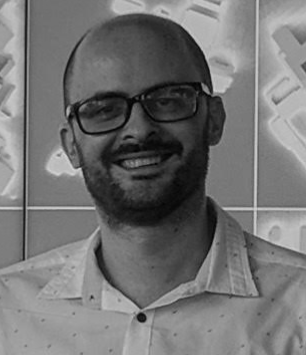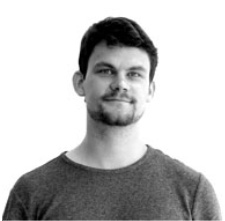Artificial Intelligence | Online Workshop | English | Europe-Mideast-Africa
Description:
This workshop focuses on AI-driven, performance based urban design. Through a studio-like format, this workshop aims to take participants with little to no experience of artificial intelligence, to applying state-of-the-art models to urban-scale issues. While there may exist tools and s+imulation engines used to evaluate urban designs, they are seldom applied in practice. A major reason for this is the high barrier to entry, both in terms of the required expert knowledge to set up the needed environment and model, as well as the high transaction costs of integrating multiple of such models into practical urban design workflows.
The Intelligent Framework for Resilient Design (InFraReD) seeks to change that. InFraReD is a web-platform for intelligent and resilient urban design. The backbone of machine learning models can provide real-time feedback on the solar, sunlight and wind performance of designs and guide decisions at every step of the process. Leveraging the speed and accessibility of InFraReD linked to Grasshopper, participants will explore AI in urbanism within a sandbox model of an urban quarter.
In the studio format, we will form teams that will work on a real-world urban development case study. The teams will develop their concepts using InFraReD, along with external optimization and exploration tools. Throughout the studio lectures by experts in urban design and design optimization will accompany the students' work. conclusively, a panel of distinguished professionals will review the final design proposals.
Key Words:
Generative design,Deep learning,Urban design,InFraReD
Required Skills:
Rhino (Beginner), Grasshopper (Intermediate)
Required Software:
Rhinoceros 3D, Grasshopper
Required Hardware:
Windows PC
Maximum number of participating students:
30
The Intelligent Framework for Resilient Design (InFraReD) seeks to change that. InFraReD is a web-platform for intelligent and resilient urban design. The backbone of machine learning models can provide real-time feedback on the solar, sunlight and wind performance of designs and guide decisions at every step of the process. Leveraging the speed and accessibility of InFraReD linked to Grasshopper, participants will explore AI in urbanism within a sandbox model of an urban quarter.
In the studio format, we will form teams that will work on a real-world urban development case study. The teams will develop their concepts using InFraReD, along with external optimization and exploration tools. Throughout the studio lectures by experts in urban design and design optimization will accompany the students' work. conclusively, a panel of distinguished professionals will review the final design proposals.
Schedule:
Jun 28 - Jul 2
-
Day 1 / Jun 28
-
Day 2 / Jun 29
-
Day 3 / Jun 30
-
Day 4 / Jul 1
-
Day 5 / Jul 2
Instructors:
-
 Angelos Chronis Austrian Institute of Technology,Head of City Intelligence LabAngelos is the head of the City Intelligence Lab at the Austrian Institute of Technology in Vienna and he teaches at the Institute for Advanced Architecture of Catalonia and the Bauhaus University in Weimar. He studied Architecture at the University of Patras and Computational Design at the Bartlett, UCL and has completed his PhD as a Marie-Curie Fellow at the Innochain Innovative Training Network. He has previously worked as an Associate at Foster+Partners and has been teaching at the Bartlett, UCL, the IUAV in Venice and the TU Graz.
Angelos Chronis Austrian Institute of Technology,Head of City Intelligence LabAngelos is the head of the City Intelligence Lab at the Austrian Institute of Technology in Vienna and he teaches at the Institute for Advanced Architecture of Catalonia and the Bauhaus University in Weimar. He studied Architecture at the University of Patras and Computational Design at the Bartlett, UCL and has completed his PhD as a Marie-Curie Fellow at the Innochain Innovative Training Network. He has previously worked as an Associate at Foster+Partners and has been teaching at the Bartlett, UCL, the IUAV in Venice and the TU Graz. -
 THEODOROS GALANOS Austrian Institute of Technology,Senior Project ManagerI work at the intersection of Design and Intelligence, and specialize in the development of advanced computational design technologies for the built environment that seek to generate, extract, collect, and articulate Design Intelligence, innovative solutions that bring together disciplines and enable exploration and automation as driving factors of effective, efficient, and most of all, creative design processes. My current work focuses on bespoke Machine Learning workflows which produce meaningful and measurable outcomes across vast design spaces in a fraction of the time.
THEODOROS GALANOS Austrian Institute of Technology,Senior Project ManagerI work at the intersection of Design and Intelligence, and specialize in the development of advanced computational design technologies for the built environment that seek to generate, extract, collect, and articulate Design Intelligence, innovative solutions that bring together disciplines and enable exploration and automation as driving factors of effective, efficient, and most of all, creative design processes. My current work focuses on bespoke Machine Learning workflows which produce meaningful and measurable outcomes across vast design spaces in a fraction of the time. -
 Nariddh Khean Austrian Institute of Technology,PhD CandidateNariddh is a PhD candidate at the City Intelligence Lab, interested in the development and deployment of artificial intelligence models through web platforms. In particular, he focuses his efforts at the intersection of how AI models can best be positioned for the most effective uptake by those in the architecture industry. He has studied computational design and philosophy at the University of New South Wales, conducted internships at Architectus and Arup, and is currently undergoing his PhD studies at the Austrian Institute of Technology and the Bauhaus University, Weimar. His PhD research efforts have been toward the Intelligent Framework for Resilient Design (InFraReD), a web platform that offers predictions for microclimate urban simulations powered by deep learning. Through his research, Nariddh hopes to contribute to a future where every architect and designer has the power, efficiency, and omnipotence of AI-enhanced tools at their fingertips.
Nariddh Khean Austrian Institute of Technology,PhD CandidateNariddh is a PhD candidate at the City Intelligence Lab, interested in the development and deployment of artificial intelligence models through web platforms. In particular, he focuses his efforts at the intersection of how AI models can best be positioned for the most effective uptake by those in the architecture industry. He has studied computational design and philosophy at the University of New South Wales, conducted internships at Architectus and Arup, and is currently undergoing his PhD studies at the Austrian Institute of Technology and the Bauhaus University, Weimar. His PhD research efforts have been toward the Intelligent Framework for Resilient Design (InFraReD), a web platform that offers predictions for microclimate urban simulations powered by deep learning. Through his research, Nariddh hopes to contribute to a future where every architect and designer has the power, efficiency, and omnipotence of AI-enhanced tools at their fingertips. -
 Serjoscha Duering Austrian Institute of technology,PhD candidateSerjoscha is a PhD Candidate in the City Intelligence Lab at the Austrian Institute of Technology in Vienna. His research interest lies in cities as complex systems and the interplay of spatial configurations with socio-economic patters of self organization. For his PhD he focuses on developing integrated workflows for performance driven urban design and simulations.
Serjoscha Duering Austrian Institute of technology,PhD candidateSerjoscha is a PhD Candidate in the City Intelligence Lab at the Austrian Institute of Technology in Vienna. His research interest lies in cities as complex systems and the interplay of spatial configurations with socio-economic patters of self organization. For his PhD he focuses on developing integrated workflows for performance driven urban design and simulations.